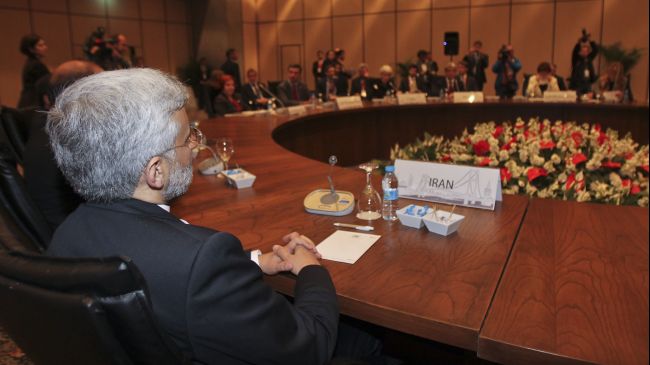Almaty nuclear talks offer glimmer of hope


Iran and the world powers of the 5+1 group are starting a new round of talks in Almaty, Kazakhstan, on February 26. The outcome of these long-awaited negotiations would depend on a variety of factors such as possible offers to be discussed in the gathering.
Over the past days, conflicting suggestions, views and positions have been heard from Western officials.
A couple of days ago, Reuters and an Israeli paper reported that the P5+1 — comprising the United States, Russia, China, Britain, France and Germany — would have no considerable offer for Iran. They quoted unnamed officials as saying that the Western governments are poised to offer to lift sanctions on Iran’s gold trade in return for the closure of Fordow nuclear site near the Iranian city of Qom.
It was clear from the very beginning that this report would not be true, because if the Western governments favored a positive outcome from the negotiations they would not have raised such an insignificant offer after eight months of procrastination about date and venue of the talks.
Agence France Presse (AFP) and Reuters quoting diplomats, who spoke on condition of anonymity, reported that the Western governments are planning to submit a considerable proposal to Iran in return for the Islamic Republic’s flexibility and seriousness in the Almaty talks. The diplomats, however, refused to reveal the details of the offer. That shows that the Western governments are still pushing ahead with their media game in order to influence the talks.
Some analysts believe that the 5+1 group does not intend to hold serious negotiations with Iran before forthcoming presidential election in June in the Islamic Republic.
Such a view is considered a media game for two reasons:
They used to say until recently that everyone is waiting for the US presidential election which was held in November 2012. Then, they said that the 5+1 group will hold talks with Iran after the inauguration of the US president in January. Now, one month has passed since Obama took office for a second consecutive term and now everyone is waiting for Iran’s presidential election. It is only a propaganda campaign.
The second reason is that they know quite well that that in Iran, the nuclear issue is in the hands of the Supreme National Security Council (SNSC) with the final say resting with the Leader of the Islamic Revolution Ayatollah Seyyed Ali Khamenei.
The SNSC has been handling the nuclear issue even under the presidency of President Mahmoud Ahmadinejad’s predecessors, Akbar Hashemi Rafsanjani and Mohammad Khatami.
The International Atomic Energy Agency (IAEA) published its latest report about Iran’s nuclear program on February 22, announcing Iran’s installation of a new generation of centrifuges at Natanz facility. Foreign media interpreted the UN nuclear agency’s report as Iran flexing its muscles, but the fact is that Iran’s actions have all been reactive.
To that effect, two points need to be considered:
The first point is that Iran’s activities have all been legal, under supervision of the IAEA and within the framework of the Non-Proliferation Treaty (NPT). In other words, upgrading centrifuges at Natanz facility has been in compliance with international regulations and the IAEA report indicates that Iran has not committed any violation.
The second point is that Iran has reacted to decisions adopted by the Western governments. When they are willfully toughening their sanctions against the Iranian people, regardless of the ineffectiveness of sanctions on Iran’s nuclear capacity, Iran would reciprocally boost its enrichment in a bid to neutralize their efforts and strengthen its bargaining chip.
The Western governments have tightened their sanctions which they are using as a pressure lever in their talks with Iran. As a matter of fact, they are further driving Iran to opt for self-sufficiency and higher-quality uranium enrichment.
The irony is that the Western media often ignore Iran’s positive measures undertaken to build confidence and address the West’s concerns. According to the latest report by the IAEA’s Director General [Yukiya Amano], Iran has converted the bulk of its 20-percent enriched uranium to powder to be used in nuclear fuel plates for making pharmaceutical radio isotopes. Due to the irreversibility of uranium, this action would strip the Western governments of any pretext to express concern about diversion in Iran’s nuclear energy program.
Generally speaking, the Almaty talks could turn out to be hopeful as they are resumed after eight months of unjustified delay. These negotiations would offer tens of solutions in view of a final agreement provided that both sides show firm willing for a positive outcome.
Undoubtedly, one cannot expect all the problems of the last decade to be resolved in a single meeting, but one can be hopeful of further fundamental steps to be taken ahead.







